Peruvian Harvest Fresh Catch – Part Two
Two-Parter Part Deux
Originally Published: Sunday, March 17, 2024
Specs
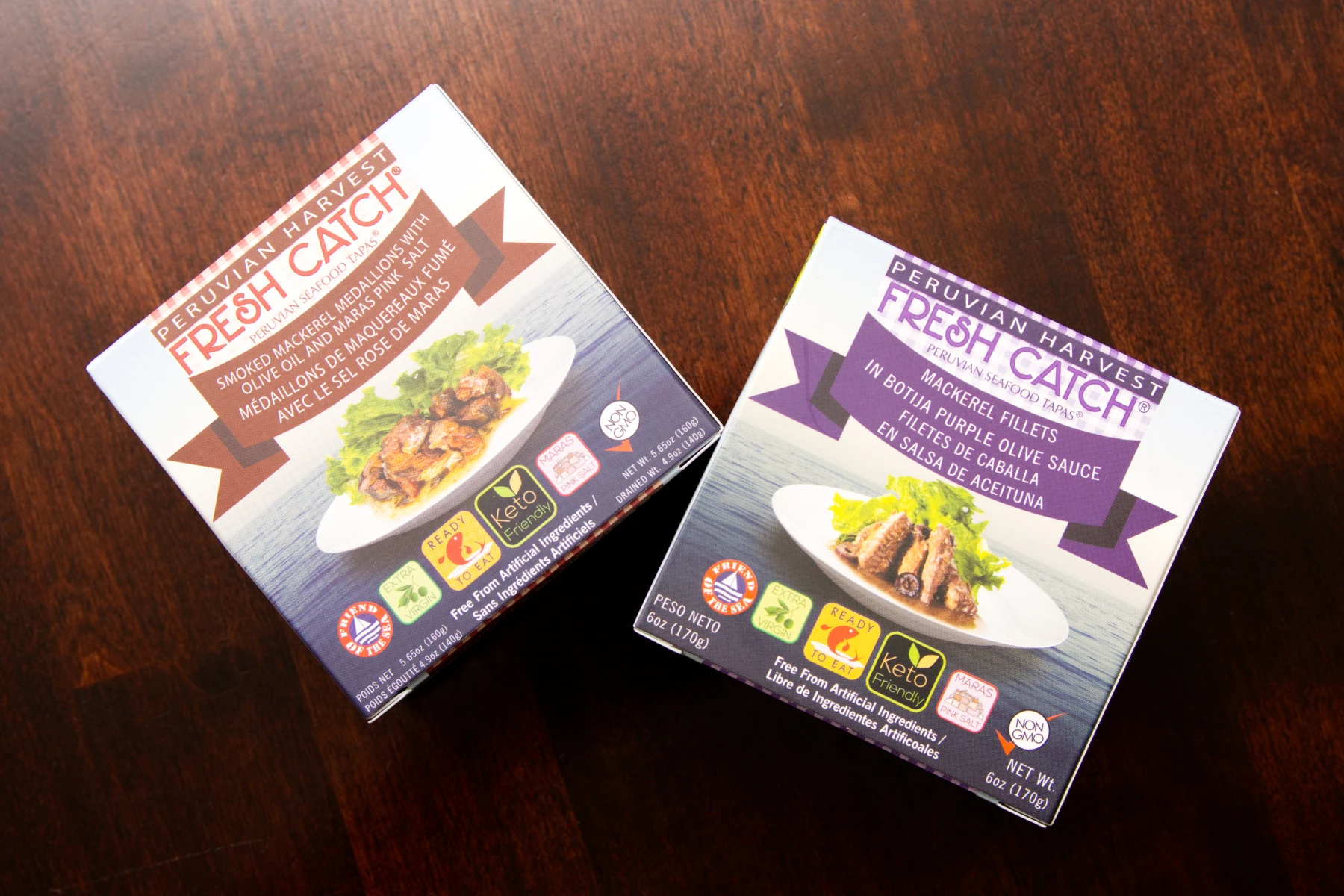 For your Peru-sal.
For your Peru-sal.A Tale of Two Fishies
Part 2 of 2 Sponsored Reviews
Today’s review is a continuation from last week, featuring two more products from Peruvian Harvest. If you haven’t read the review from last week, you can find it here. I talked a little bit about the brand and a little bit about the products, so I will skip most of the preamble and get on with the meat (fish) of the matter.
There is something I would like to address regarding the last review, which is the pricing of the product. I was informed after the first review was posted that the shelf price is lower than I was originally told, and clocks in at around $10 CAD as opposed to $18 CAD. That is a big difference in pricing and will come into play in today’s review. I didn’t feel like the lower price affected my first review as much as today’s selections, so I have made the decision to leave the value star rating unchanged on the original, with an honorable half-star mention for the pepper and onion marinated mackerel. If I ever decide to grant half-stars, I will update the rating on that product.
Now, on to more important business, the eating of canned fish.
To close off the two-part review, we have Mackerel Fillets in Botija Purple Olive Sauce and Smoked Mackerel Medallions with Olive Oil and Maras Pink Salt, two intriguing products from Peruvian Harvest that I’m eager to dive into.
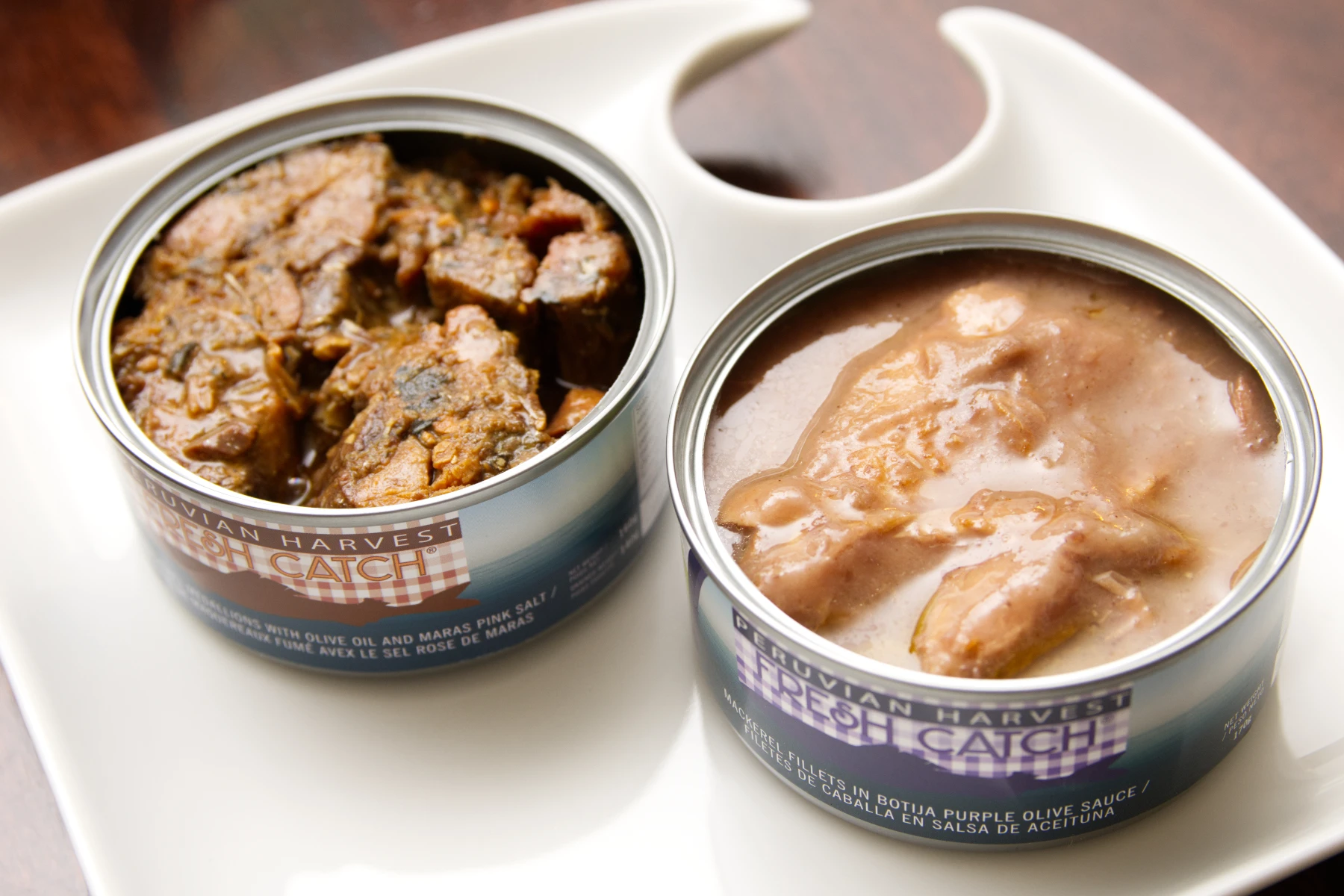 Two dramatically contrasting looks.
Two dramatically contrasting looks.It Was the Best of Times
Botija olives are a Peruvian species of olives introduced in the 16th century and have since been interwoven into their cuisine. There are varying accounts of how the olives showed up in Peru, but the general consensus seems to be that they were brought over by the Spanish colonist Don Antonio de Ribera from Seville.
Botija olives are large, fleshy, dark purple olives that are usually picked only when ripe and cured with salt. Because they’re picked ripe before processing, they generally have less bitterness and fewer astringent qualities versus many other olives.
I am not necessarily the biggest fan of olives, but I do appreciate the occasional olive bowl with my charcuterie, especially if there’s a bit of a mix of different flavours and textures. I wasn’t sure what this product held in store for me, but I was cautiously optimistic.
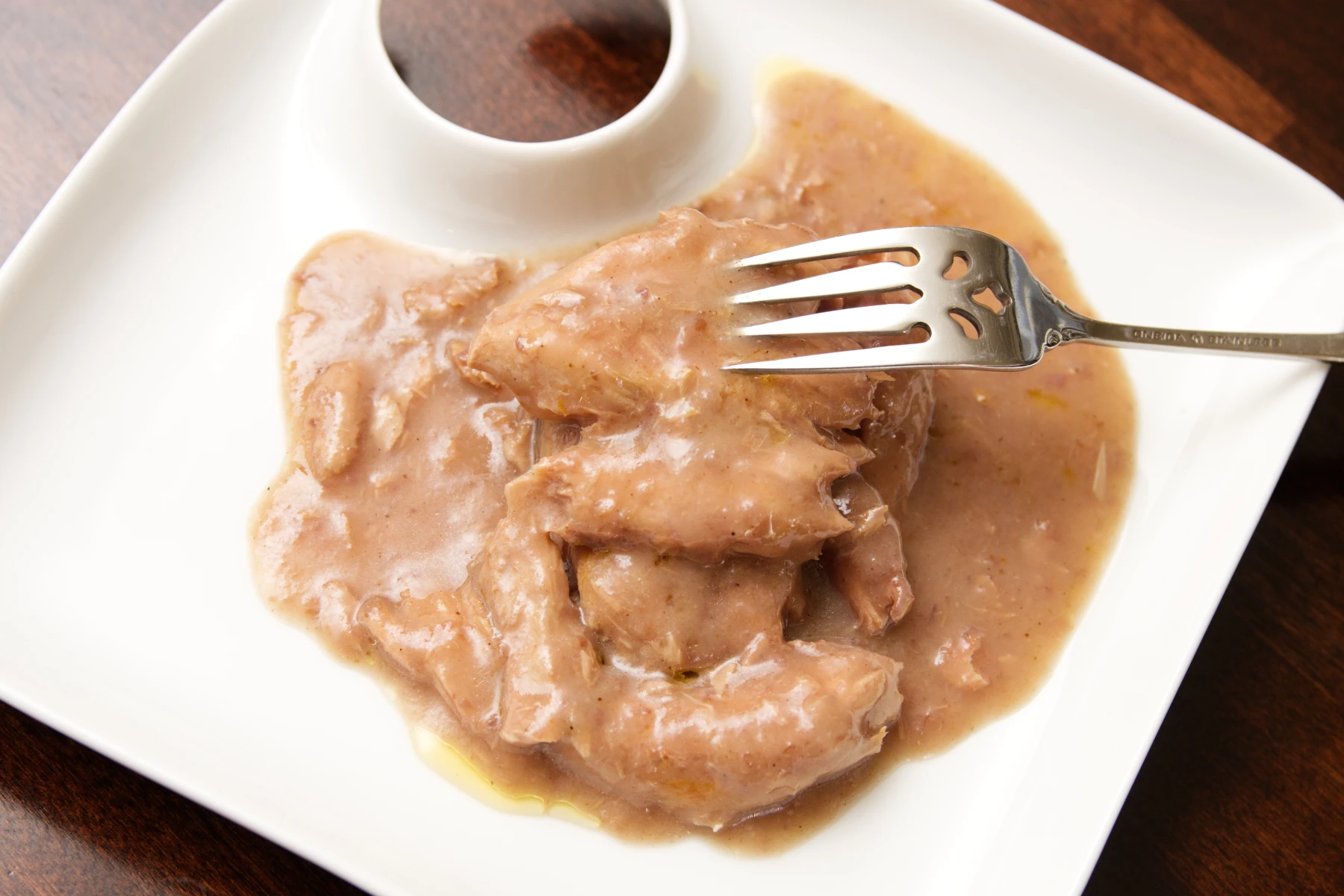 Who knew an olive smoothie would be pink?
Who knew an olive smoothie would be pink?I must admit, this was not the most visually appealing product of the bunch. The dark purple olives were pureed with seasoning into a pinkish paste that clung to every fillet of mackerel. The appearance didn’t put me off, however.
The sauce had a surprisingly delightful and complex scent, full of fruity citrus and savouriness, as well as a subtly sweet, perfume like quality. Fishiness from the mackerel was very subdued in comparison to the sauce, and when combined with the olives almost smelled a bit earthy, like cooked black beans.
I tasted the sauce on its own first, and it felt like a bit of a contradiction. It was surprisingly mild yet deep, simple yet complex. The familiar olive flavour was present, bursting with fruit and umami. There was no bitterness or mouth puckering sourness, but rather just a subtle sweetness that lingers on the back of the throat (in Chinese, we call this flavour 甘; Gan).
My next bite was a piece of mackerel covered in the pinkish goop. The briny, salty mackerel paired very well with the fruity sauce, and formed a bit of a power couple on the fork. The flesh was firm but still tender, with the sauce adding a lot to the mouthfeel of the fillets. The bright acidity from the olives always added life back into the palate.
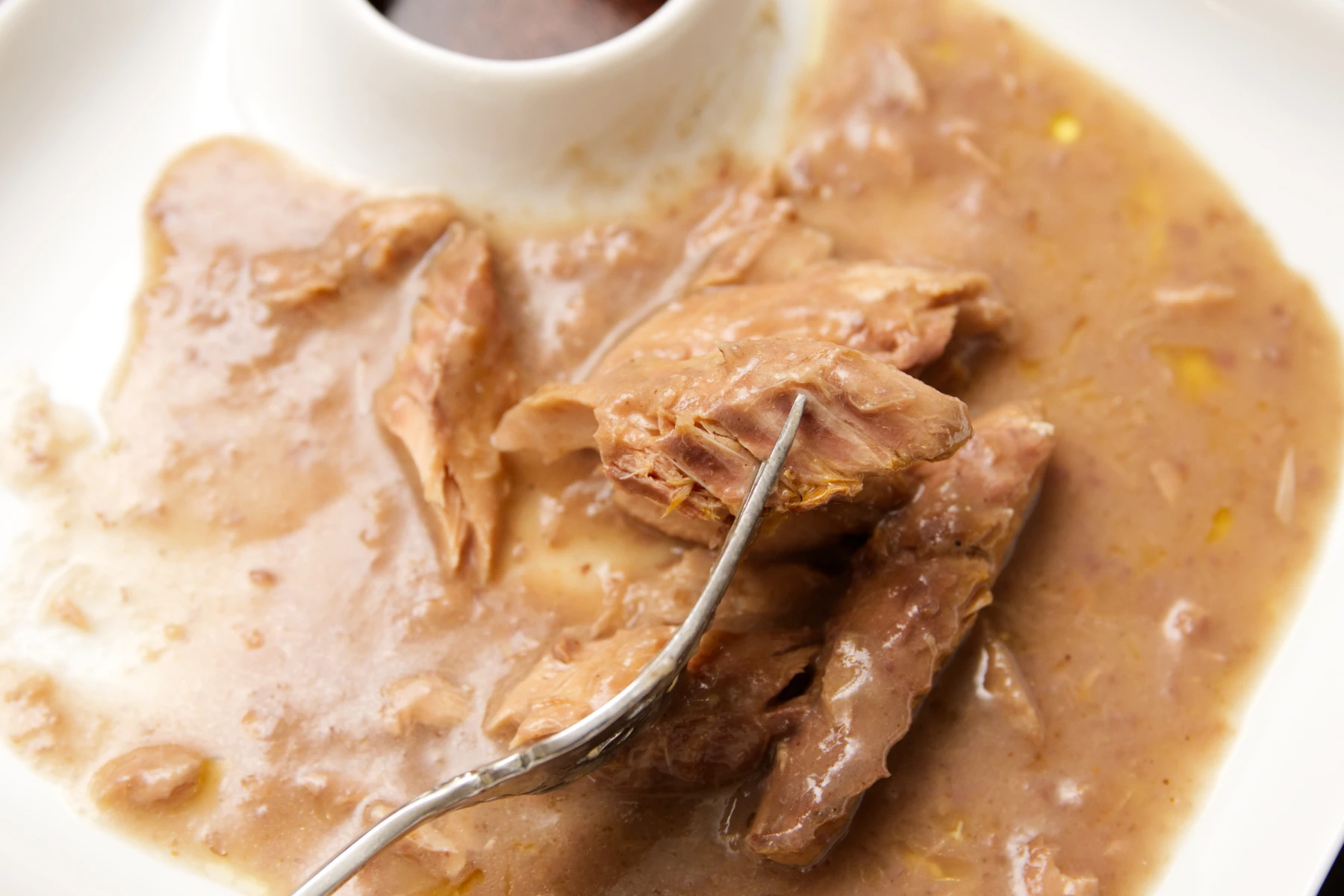 Looks aren’t everything.
Looks aren’t everything.The olive sauce and fish never overpowered each other and managed to hand off the best qualities in their flavour profile in a well choreographed tag-team. There was plenty of sauce left on the plate after the mackerel morsels were consumed, so I dipped some buttered bread and sopped up the leftovers before moving on to the next can. This means this can received the high honours of finish the sauce.
It Was the Worst of Times
Maras pink salt is a Peruvian mountain salt from the Andes. It was part of all four products I sampled for these reviews, but the smoked mackerel featured it prominently in the name of the product.
Like Himalayan pink salt, Maras pink salt gains its colour from trace minerals in the mineral salt structure. The salt is mined via evaporation of salty spring water, and it’s said to have numerous health benefits. Personally, I’m not sure if the health benefits of pink salt outweigh the negatives that come with an overconsumption of sodium, so I wouldn’t recommend eating spoonfuls of the stuff as a supplement.
Now, people who know me know that I am a sucker for smoke. I love smoky whisky, smoky fish, smoky BBQ, smoky bonfires, so a smoky mackerel that comes in the form of a can should be a shoo-in.
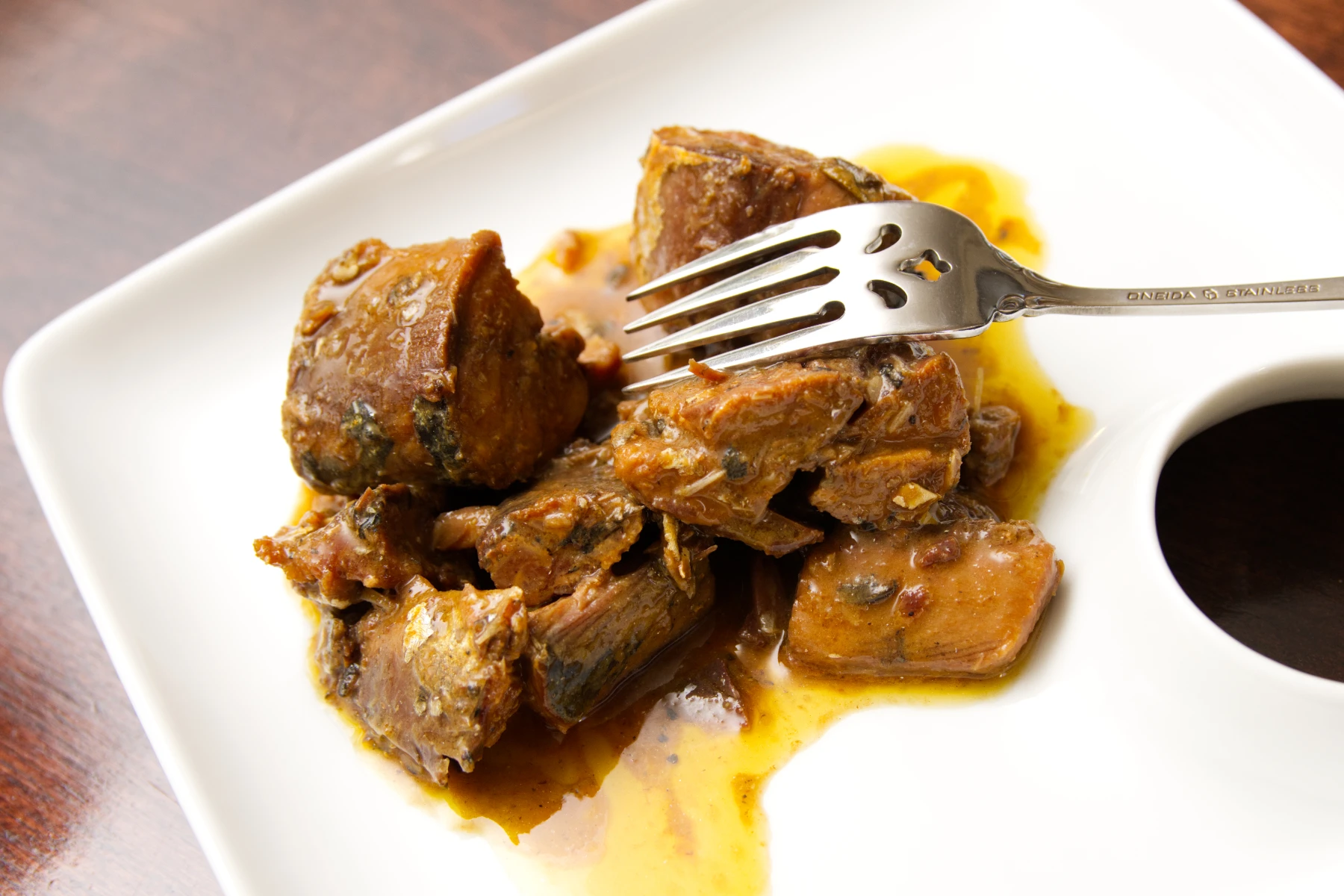 More photogenic than its purple cousin.
More photogenic than its purple cousin.The contents of the can had a beautiful bonfire scent that spewed forth as soon as the lid was popped and looked a treat on the plate when poured out. There were visible grill marks on some pieces of mackerel, which got me salivating like Pavlov’s pooch.
I eagerly shoved a piece of mackerel in my gob and was immediately blasted by the infusion of smoke in the medallions. It was at this point that I cocked my head in confusion because I wasn’t enjoying the experience.
I had to make sure I didn’t make a mistake, so I took another bite, and again, I didn’t enjoy it. I had to identify what was wrong with a product that seemed tailored to my exact tastes and I arrived at a horrifying conclusion: It was too smoky.
Now, before you burn me at the stake like a smoky mackerel, you must understand how difficult this was for me to rationalize, yet here we are.
The medallions were fully infused with rich, smoky flavour, but there was an acrid bitterness that capped off every bite. I’m not sure what type of wood was chosen for the smoker, but the fish tasted tannic like a young oaky red wine, with all of the bitter and astringent qualities. I believe there was some processional error in the smoking process in which too much of the bitter wood tannins were incorporated into the flesh.
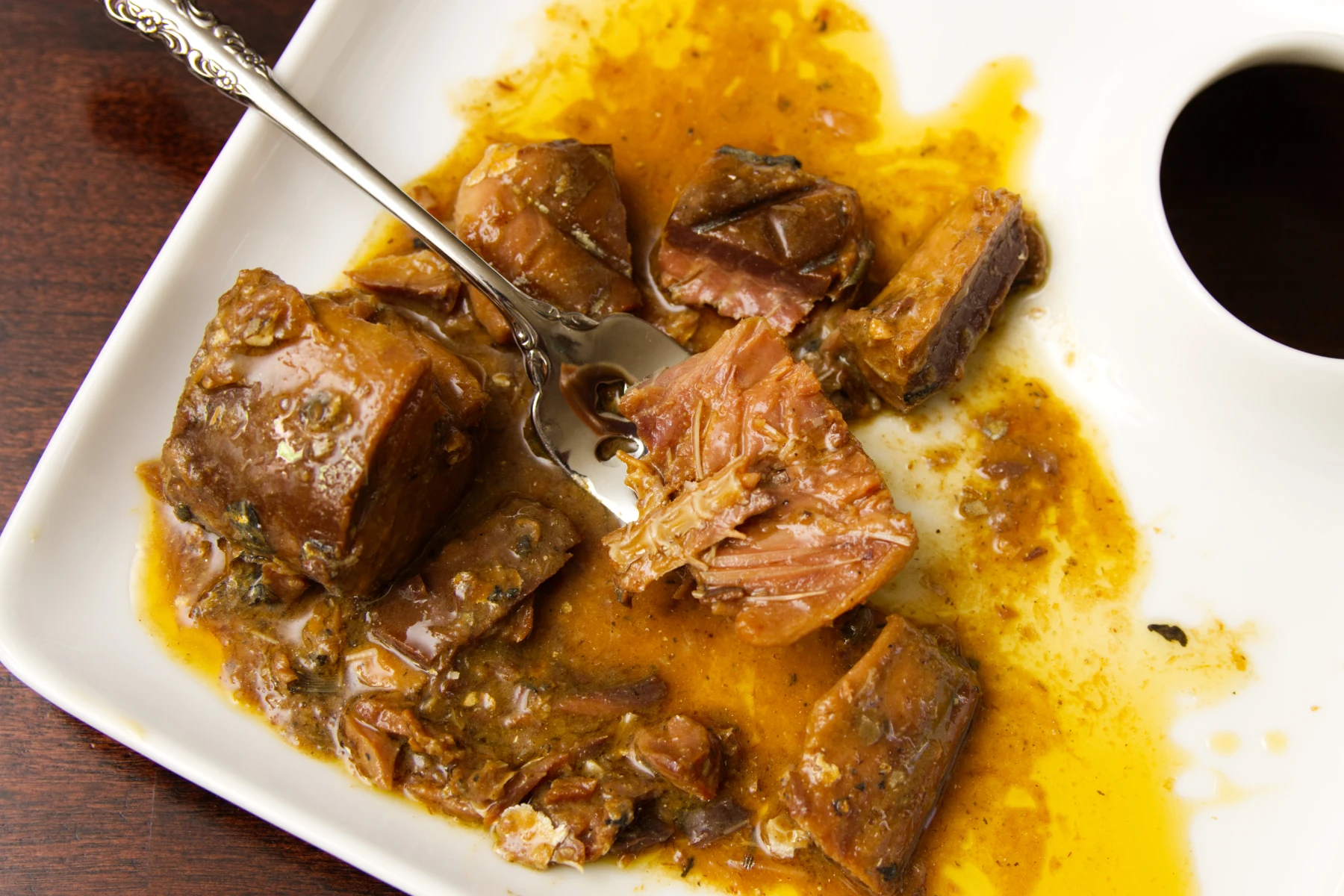 Look at those beautiful grill marks.
Look at those beautiful grill marks.Bitterness is the most difficult flavour to balance for the palate. Evolutionarily speaking, we are extremely sensitive to bitterness in foods as a defense mechanism against natural poisons. Over time, we have trained our bodies and found techniques to balance bitterness and make it not only palatable, but delicious (think bitter liquors like beer or Campari, or bitter vegetables like endives or artichokes). Carbonized food, while often a little bitter, is also often extremely delicious. Barbecues would be nothing without the little bits of burnt sauce clinging to the meat, and oven-fired pizza loses some of its charm without its characteristic bubble of blackened crust.
Unfortunately, the bitterness in this mackerel was not well balanced; it ended up sticking out and lingering on the back of the throat well after the tasting was concluded. A little bit of salt helped to arrest the bitterness, but did not do much to address the lingering aftertaste.
It Was the Blurst of Times?
I think today’s tasting was the most confusing and paradigm-shifting experience I’ve had since this blog started. I was fully expecting to dislike the olive sauce and gobble down the smoky offering before starting but my expectations were turned on its head.
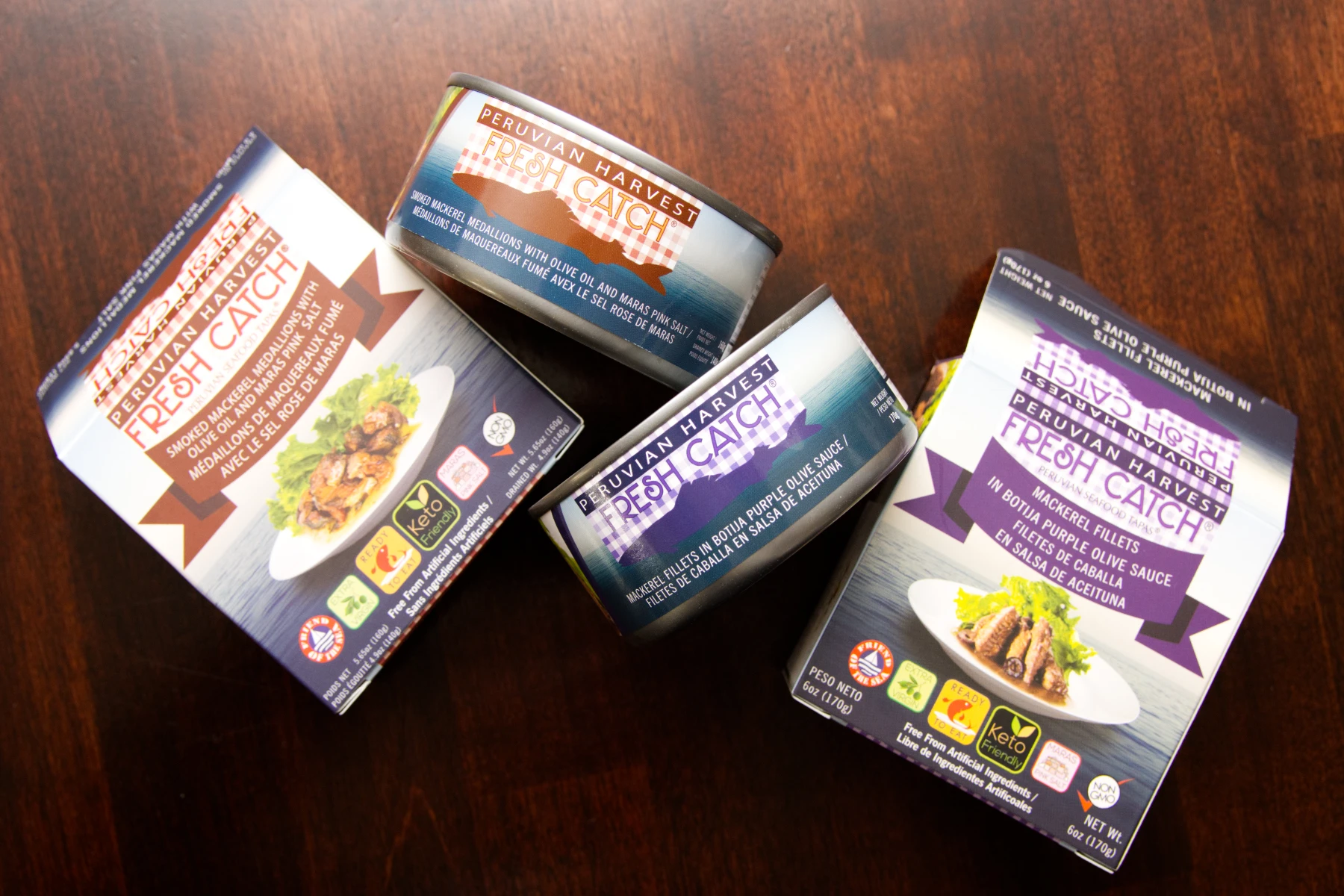 What a rollercoaster of emotions.
What a rollercoaster of emotions.The Mackerel Fillets in Botija Purple Olive Sauce gets an unequivocal Yum and a two-star value rating for offering something delicious and completely unique in ingredients, preparation, and flavour profile. This is the product to beat from this maker, and I highly recommend giving it a try, even if you don’t normally like olives.
The Smoked Mackerel Medallions with Olive Oil and Maras Pink Salt gets the unfortunate Chum. I’m not exactly sure where the process went wrong from the smoker to the can, but something didn’t quite click.
Just goes to show you, you really should not judge a can of fish by its cover.

Mackerel Fillets in Botija Purple Olive Sauce
Smoked Mackerel Medallions with Olive Oil and Maras Pink Salt